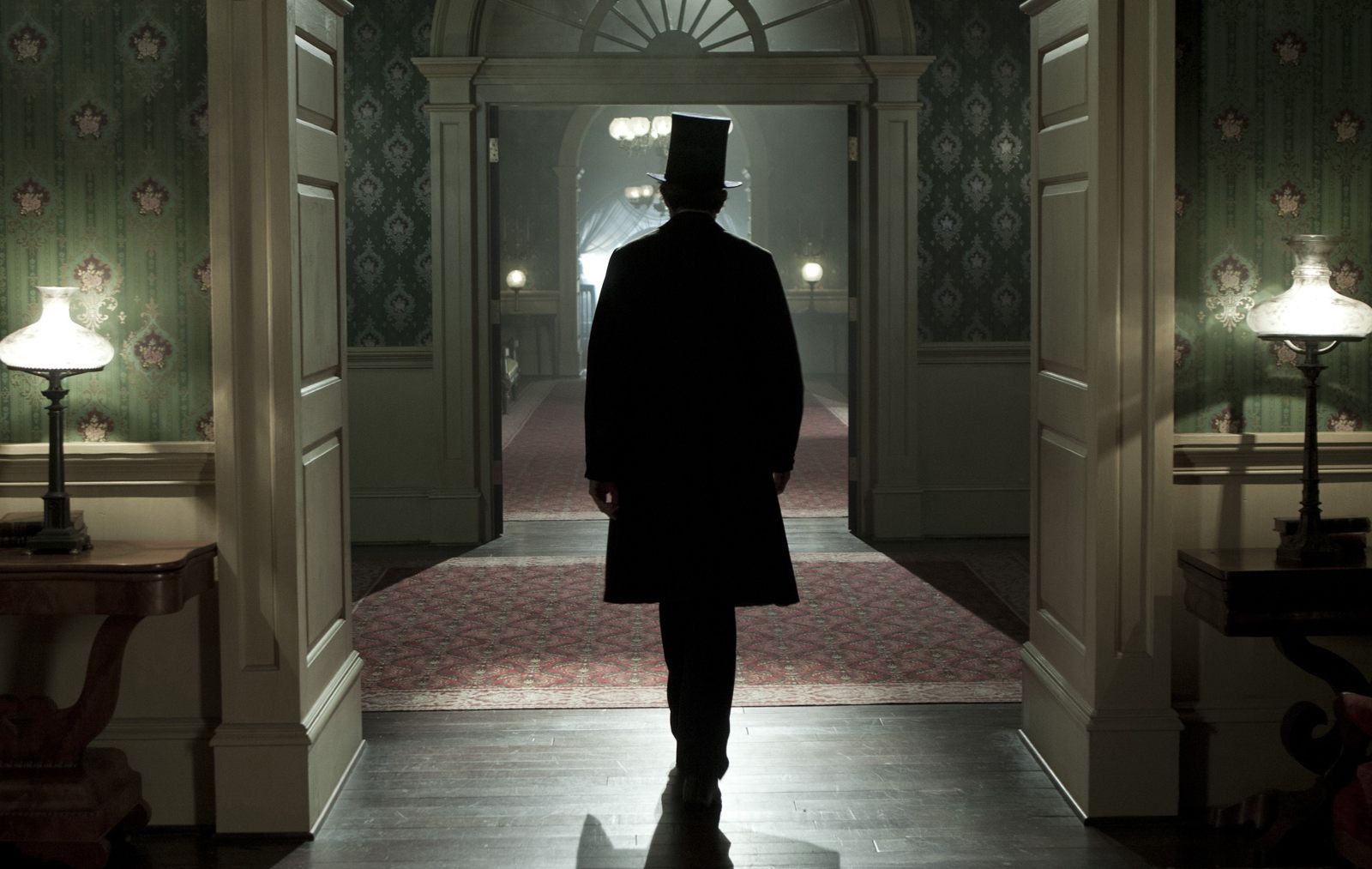Lincoln
Another powerhouse central performance from Day-Lewis makes potentially dry subject matter riveting.

I suppose the first point to make about Lincoln, at least for those not too familiar with the film's premise going into it, is that it's not a biography of the man, detailing his upbringing and his rise to become the 16th President of the United States of America. That was ably covered in last year's documentary Abraham Lincoln: Vampire Hunter, and we don't need to repeat it. Spielberg's film dials into the weeks preceding the debate and (spoilers) passing of the 13th Amendment to the U.S. Constitution, where they finally agree that slavery is a bad thing up with which they should not put.
Perhaps we should mention from the outset that while this seems to fall broadly in line with what modernity records Lincoln's actions to be, it's fair to say that it's an open question about what Lincoln's feelings and motives for his actions truly were. While this film implies, wisely without outright proclaiming it, that Lincoln was indeed motivated by a drive to end the U.S.A's participation in humankind's darkest act, we're talking about a guy who not too long before had been saying the solution to the social upheaval caused by suddenly freeing all of these black folks was to ship them all back to Africa.
Of course Lincoln was a politician, and the thing to remember about politicians is that tying the truth into such pretzels it's indistinguishable from, but technically not a lie, is essentially the entire job description. Regardless, Lincoln spent great political capital and used great influence to get the amendment passed, so all this dissembling seems a little disingenuous. Certainly if you judge him by his actions, there's few figures in the Abolitionist movement that could say they did more for the cause.
So while Lincoln might not be a window into the subject's soul, it's providing a remarkable look at the machinery of government and the balance of powers at perhaps the most delicate and pivotal moment in the U.S.A's history. Now, a film that largely concerns itself with political chicanery doesn't seem like it would be the most riveting experience you could have in the cinema, especially over two and a half hours, so it's to its very great credit that Lincoln is so compelling a watch.
Much of that there credit has to go to Daniel Day Lewis in the title role, providing another blistering performance of the sort we've come to expect from him. Perhaps we're in danger of taking him for granted, so it's important to recognise just how captivating he is in the role. Would the film work without him? Probably, given how important a time it portrays and the quality of the supporting cast, but it wouldn't have stormed anything like as many barns as it currently does.
Speaking of the supporting cast, it's impeccable. Tommy Lee Jones is on form as the firebrand Abolitionist Thaddeus Stevens , and indeed this is as good a performance as I've seen from him. You could argue that while Lincoln is the logical head of this film, having to weigh the human costs of the ongoing civil war with the practicalities of this vote, and the implications of a possible early end to the war, Thaddeus provides the heart, being one of the few characters to believe the in retrospect blindingly obvious proposition that all men are created equal. He also has as critical a personal struggle in dialling back his rhetoric to avoid scaring off the more conservative members of the Republican party (back when they weren't the party of cackling evildoers) as any of the trials Lincoln faces.
David Strathairn is perhaps a little underserved in his role as Secretary of State, and a few occasions comes across as an exposition sounding board, albeit an immensely talented one, and Joseph Gordon-Levitt's role as Lincoln's eldest son, feeling he must go to war against the wishes of his father presents an opportunity to delve into Lincoln's private life. The relationship with his sons as well as the fractured relationship with troubled wife Mary (Sally Field) serve to help humanise Lincoln, although arguably it's here where the film is at its weakest. It perhaps sounds a little heartless to say, but these personal struggles seem very minor in comparison to the events unfolding around them, and it's difficult not to wish most of these scenes could be slapped on fast forward.
However, if my only issue with the film is that a small percentage of the scenes aren't quite as brilliant as the vast bulk of the film, well, that's hardly worth mentioning at all, is it? For a film that could easily have been a very dry, procedure-driven experience, it's amazing that it's captured so much of the heart and emotion of this critical time. If you haven't seen it, you ought to.
Sally Field (Mary Todd Lincoln)
David Strathairn (William Seward)
Joseph Gordon-Levitt (Robert Lincoln)
James Spader (W.N. Bilbo)
Hal Holbrook (Preston Blair)
Tommy Lee Jones (Thaddeus Stevens)